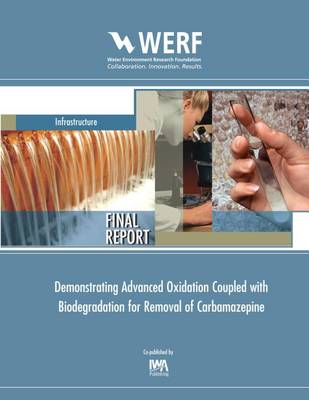Available as eBook only.
Carbamazepine is hydrophilic anthropogenic pharmaceutical found in wastewater effluents that is quite resistant to removal by conventional wastewater treatment processes. Hydroxyl radical-based advanced oxidation process can transform carbamazepine into degradation products but cannot mineralize it in an economically efficient manner.
This study evaluated the combination of ultraviolet plus hydrogen peroxide (UV-H2O2)-based advanced oxidation and biodegradation to enable carbamazepine removal; specifically, to determine whether the products of the advanced oxidation of carbamazepine can be further biodegraded by activated sludge microbial communities. The fate of 14C-carbamazepine was followed through bench-scale advanced oxidation followed by biodegradation using liquid scintillation counting and mass spectrometry equipped with a radiation detector. The results illustrate that carbamazepine oxidation products can be mineralized by activated sludge bacteria. This outcome suggests that combining advanced oxidation with a biologically active filtration treatment step can be effective for carbamazepine removal. This same treatment strategy should be evaluated for its effectiveness with other biologically recalcitrant organic micropollutants. Advanced oxidation followed by biodegradation may be a viable option for applying tertiary wastewater treatment to achieve trace contaminant removal.
- ISBN10 178040042X
- ISBN13 9781780400426
- Publish Date 29 June 2012
- Publish Status Active
- Publish Country GB
- Imprint IWA Publishing
- Format eBook
- Pages 38
- Language English
